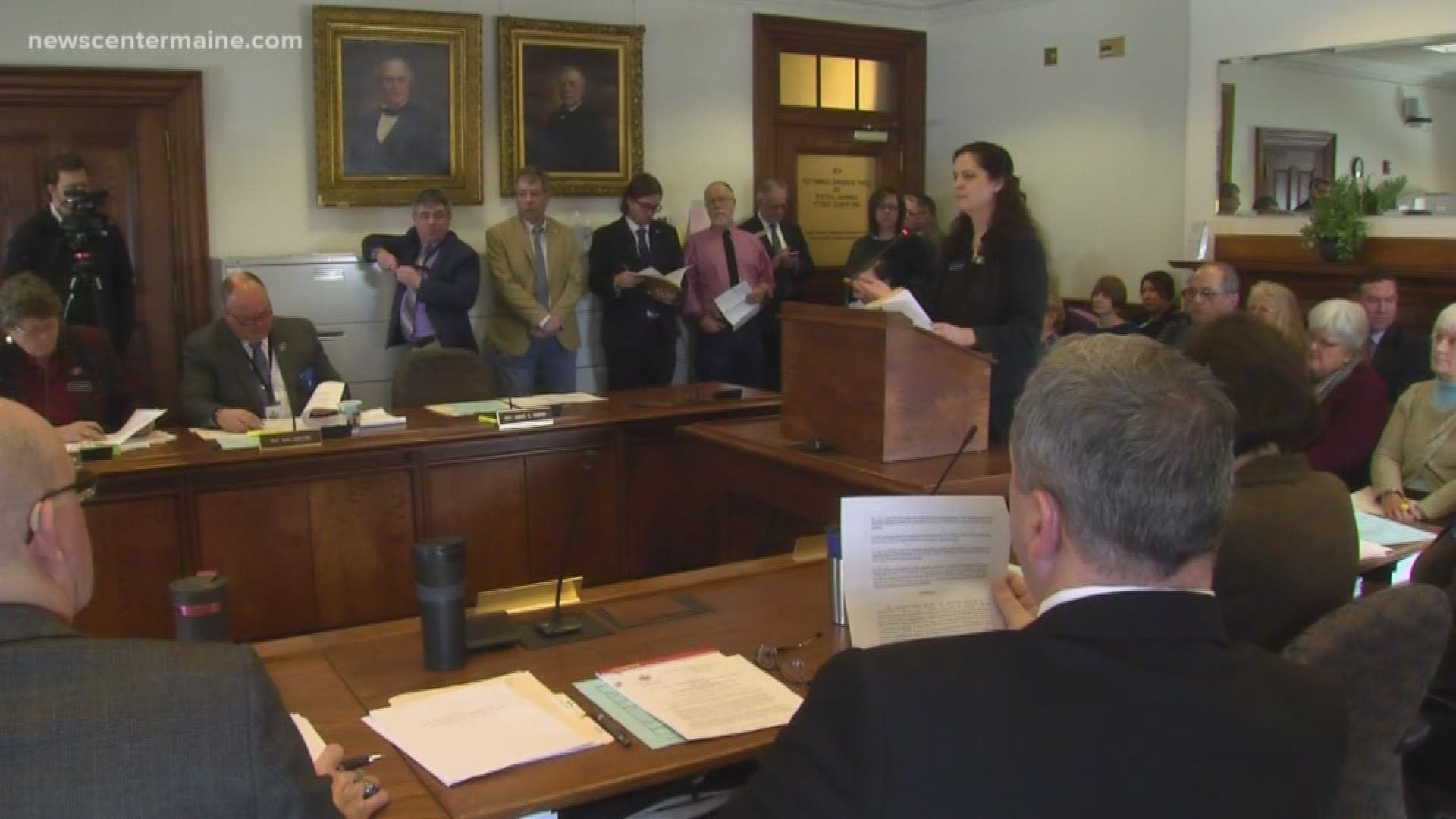AUGUSTA, Maine — Maine lawmakers may soon be asked to vote on a bill to determine what books can be assigned in the classroom.
It's a proposal that some say is common sense, but that others call censorship.
The bill is the brainchild of Rep. Amy Arata of New Gloucester.
She introduced it after picking up a book her son brought home and finding the material in it to be obscene.
The book was Kafka on the Shore, written by Japanese author Haruki Murakami. The author is highly acclaimed, and the book is explicitly sexual and includes a depiction of a sexual assault.
"This is not the same type of objectionable material our last generation argued about," said Rep. Arata. "This is something completely different, just far and beyond what anyone would expect."
Arata's original bill would have prohibited the dissemination of obscene material in public schools -- even if there was educational, artistic, or literary value. But Monday morning at the public hearing, Arata introduced an amendment to her bill that would now allow schools to give out the material but only with consent from a parent and student.
"This would provide disclosure before kids are given books to read that has extremely sex explicit material in it," Arata said.
Arata and other supporters of the bill are concerned particularly about students who have been sexually assaulted.
"To re-traumatize them by having them read a sexually explicit, very explicit book is just cruel," said Arata.
The republican from New Gloucester received a lot of support for her bill.
Women who were sexually assaulted spoke out in favor of the bill, as did parents who are concerned that their children are being exposed to content that is not age appropriate.
Jennifer White, a parent and daycare provider in Gray, said this isn't about censorship but better communication.
"I'm concerned with the lack of transparent communication between public school teachers and families," said White.
There was also a lot of opposition to the bill -- mostly from educators.
Claudette Brassil is a parent and a retired English teacher. She taught in the Topsham school district for 39 years.
"No teacher hands a student a book without reading it and thinking deeply, 'How am I going to handle this?'" said Brassil.
Brassil continued, "Literature is meant to get us thinking and present themes to us that are meant to push our boundaries of our comfort zone."
Brassil believes it's important to pay attention to topics kids are already exposed to. Many years ago, she had one student tell her he was gay before he told anyone else. She said he trusted her, and years later he told her she saved his life.
"It's about having those discussions and conversations with students and helping them voice their own thoughts. I think that's empowering," Brassil said.
Rep. Arata said saying kids are already bombarded with sensitive material is a fatalistic approach.
"Let's not give up on our kids," Arata said. "Yeah, they already see a lot of things, but it's different when it's sanctioned by a school."
The next step for this bill? The committee will go into a work session, where changes to Arata's bill may be made.
The hearing on the bill wasn't in front of the Education Committee, but the Criminal Justice and Public Safety Committee -- that's because disseminating obscene material to minors falls under the criminal statue.
That means, as it stands now, if this bill becomes law, educators could potentially be held criminally liable for literary decisions they make in the classroom.

